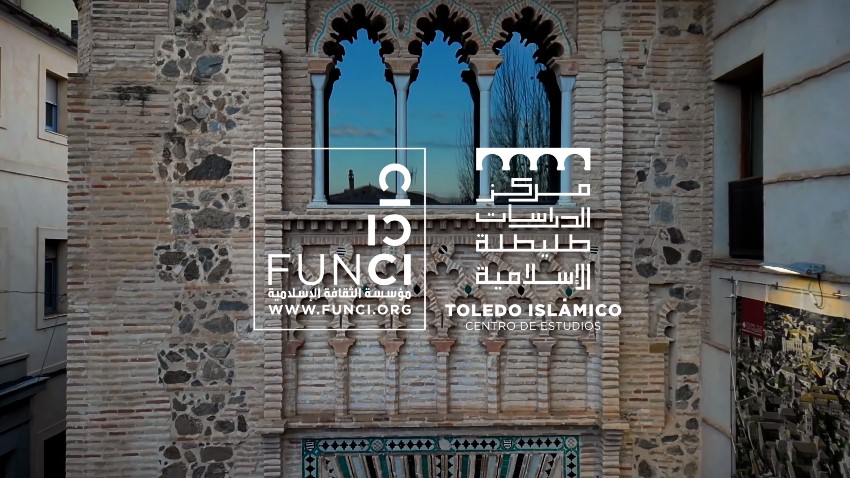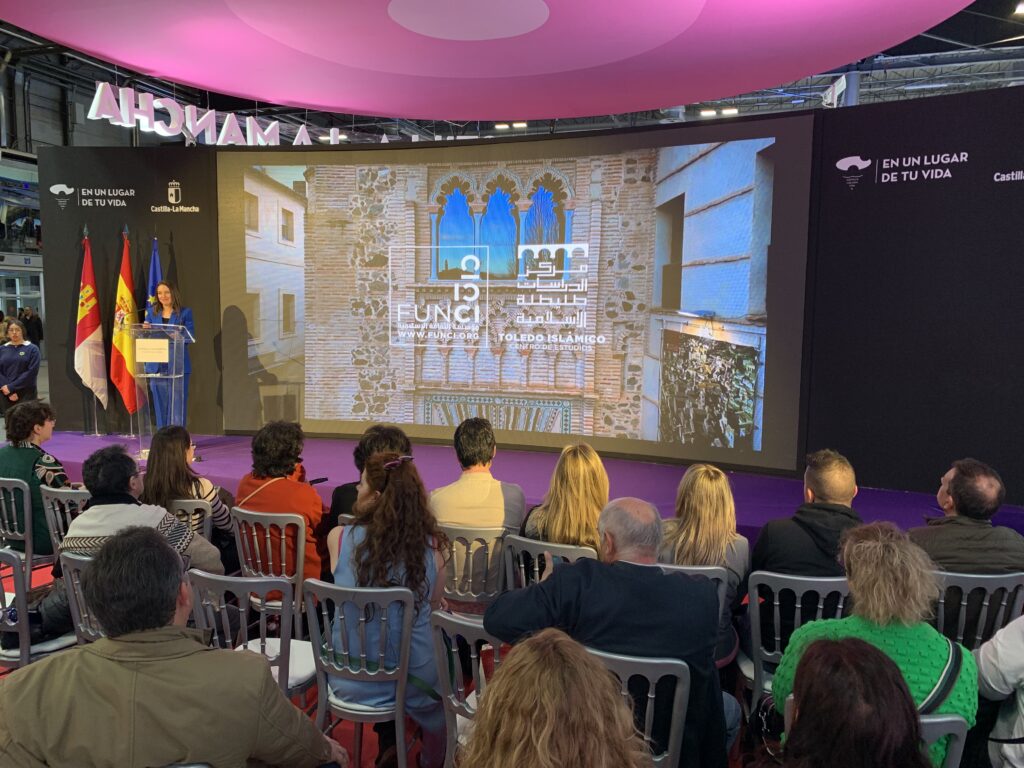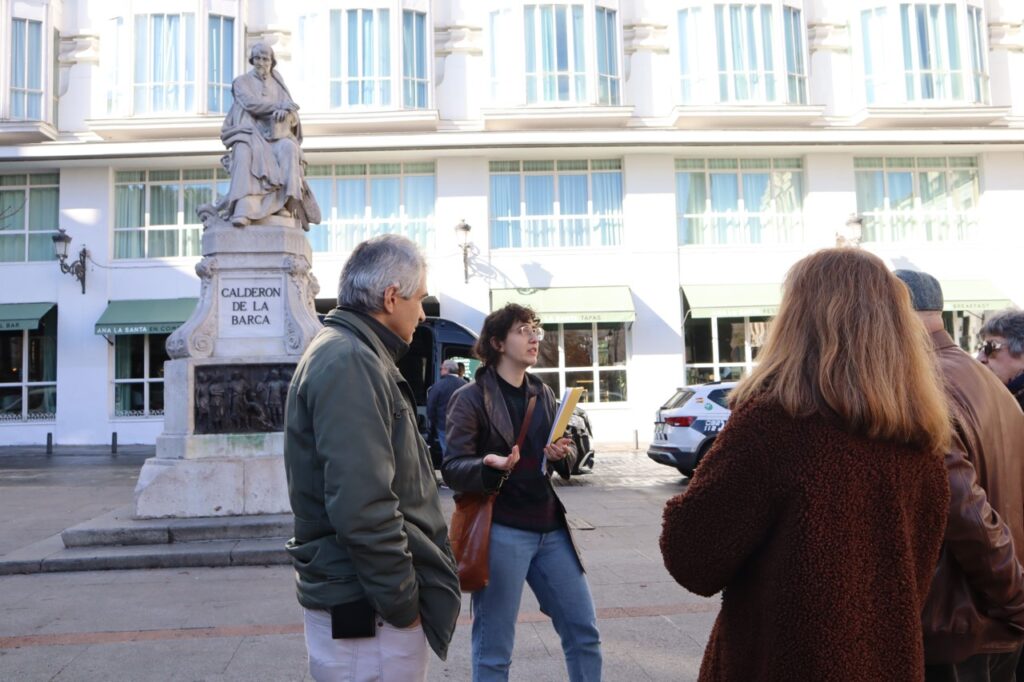Communications, News
FUNCI was present at FITUR 2024
On January 25, the Islamic Culture Foundation (FUNCI) was invited to participate in FITUR with two of its flagship projects: the Center for Studies on Islamic Madrid (CEMI) and the Center for Studies on Islamic Toledo (CETI).
Both projects are aimed at promoting research and the dissemination of knowledge, as well as the protection and recovery of the heritage and historical memory of the Islamic presence in the autonomous communities of Castilla-La Mancha and Madrid. All these efforts are fundamentally directed towards the eradication of Islamophobia and the development of these territories. Thanks to the organization of the Junta de Castilla-La Mancha, the Diputación de Toledo, and the city councils of Madrid and Toledo, the FUNCI’s representatives were able to present their initiatives for the year 2024.
Next steps for the Center for Studies on Islamic Madrid

At the previous edition of FITUR, CEMI presented the “Interactive Map” of Islamic Madrid, an online map that catalogs the Andalusi heritage in the capital of Madrid. This year the study center announced, among other things, that it can now be enjoyed in both English and Arabic. This would not have been possible without the sponsorship of Imar Engineering Consultants.
In this regard, recently, the Islamic Culture Foundation was awarded the Sheikh Hamad Prize for International Translation and Understanding (SHATIU) in the “Spanish Language Achievements” category. In relation to Spanish heritage, this spring will be the inauguration of the “Itinerario andalusí”, an initiative of FUNCI in collaboration with the Royal Botanical Garden-CSIC (located in Madrid), whose explanations can be read in Spanish, Arabic and English.
The Center for Studies on Islamic Toledo: consolidation

The Center for Studies on Islamic Toledo, inaugurated in 2021, premiered at FITUR with a brief 5-minute video, starring specialists in heritage, cultural management, international cooperation, and Islamic civilization. During its projection, the lines of work, objectives, and future prospects for the project were presented, with a unique backdrop: emblematic places in Toledo such as the Taller del Moro or the Cerro del Bu.
Since its inauguration, the CETI has promoted various actions focused on the preservation and knowledge of the Islamic footprint in Castilla-La Mancha through different lines of action: research, dissemination, sustainable recovery of heritage, and the awarness of Islamophobia. So far, the study center has collaborated and participated in archaeological, informative, and museum projects with various institutions and government bodies.
Convergences and synergies between the two centers
The great novelty this year was the creation of “All Andalus. Digital Inventory of Cultural Assets”. This is a collaborative tool for online consultation of information on cultural assets linked to the Andalusi world and its survival on the Iberian Peninsula. In the first phase, elements of Castilla-La Mancha and the Madrid Region have been collected, but it is foreseen that this inventory will be progressively enriched.
This work of information gathering and research is reflected more directly in the guided tours offered, whose catalog is increasingly extensive and diverse. The Center for the Studies on Islamic Madrid presented “The Other Barrio de las Letras: Aljamiada literature, the Siglo de Oro and the Moors” and “Atalayas del Jarama”. The latter was created with the vocation of creating a route to promote the sustainable development of several municipalities, based on their cultural heritage, in the middle Jarama Valley.
On the other hand, the Center for the Study of Islamic Toledo is launching three guided tours in the city of Toledo: “Archaeology and Islamic architecture in the city of Toledo”, “The Islamic collections of the Museum of Santa Cruz. The Andalusi world and its survival” and “The Almunia de al-Ma’mūn: history and landscape of the Huerta del Rey of Toledo”.
Conclusions and Acknowledgements
In summary, the Center for Studies on Islamic Toledo and the Center for Studies on Islamic Madrid work to offer the user complex, rigorous, and quality products that have a positive economic, social, and cultural impact on the territory, in addition to promoting a respectful and sustainable treatment of the environment.
The Islamic Culture Foundation thanks the organizers of the event and the various institutions involved for allowing us, once again, to share our achievements and progress with the ever-growing audience at FITUR. FUNCI believes that this type of event is fundamental for making itself known and for networking.



